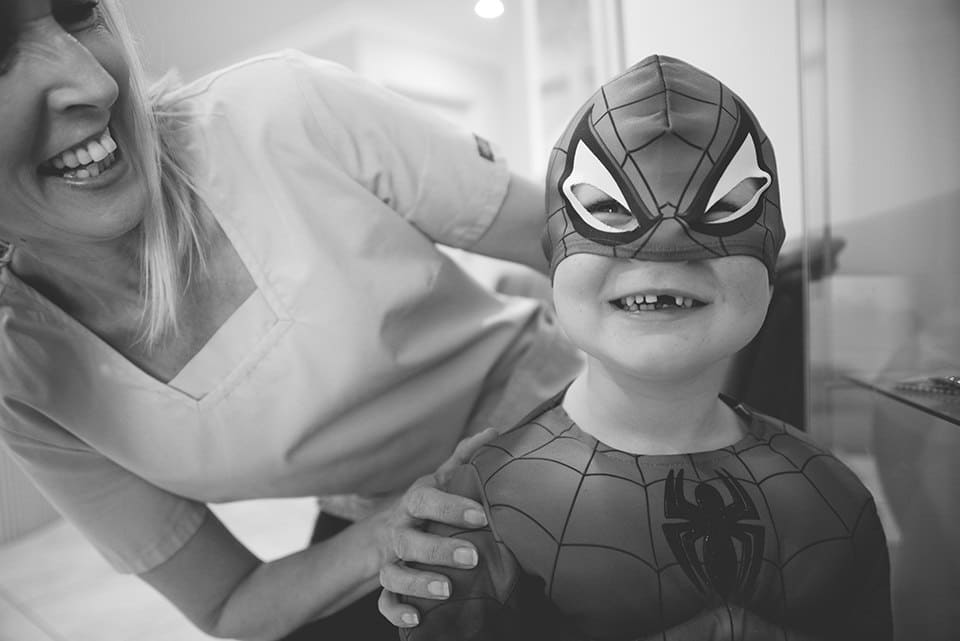What happens if a permanent tooth is knocked out during trauma?
Time is of the essence
If the tooth has completely fallen out (avulsed) then the sooner the tooth is back in the mouth the better. This is because the root of the tooth is covered in cells which we need to keep alive in order for the tooth to be able to reintegrate back into the mouth. Ideally an avulsed tooth should be replanted within 15 minutes of trauma.
How to replant an avulsed tooth (NOT A BABY TOOTH)
◦ Find the tooth.
◦ Pick up the tooth by the crown (the white part) that you would normally see in the mouth – not the yellow pointy part).
◦ Do not touch the root of the tooth.
◦ Do not scrape or scrub the tooth.
◦ If there is obvious debris on the root, please gently rinse it quickly (10 seconds) with saline (salt water) or milk or if neither of the above are available, with cold water.
◦ Do not clean the tooth with alcohol.
◦ Firmly reposition the tooth into the socket. Use the adjacent teeth as a guide to work out which way round it goes. Try to get it as close to the level of the other teeth as possible.
◦ Ask your child to bite down on some damp gauze or a damp clean flannel or handkerchief to keep the tooth in place. A wet tea bag also works well.
Children between 7 and 10 years of age are more exposed to suffer avulsion due to the elasticity of the bone at this age.
What to do if you cannot replant the tooth
If you cannot replant the tooth, ideally ask your child to keep it between their cheek and gum until you get to the dentist. If your child is too upset to do this, place the tooth in a clean container and cover with milk.
Get to your dentist
Ring Hinterland Dental on 07 54 426722 to tell them that you are on your way and that your child’s tooth is knocked out. This way they can be ready for you on arrival.
When should a tooth not be replanted?
◦ Baby teeth are not usually replanted as this can cause damage to the permanent tooth underneath the gum.
◦ When the child has other injuries which are more severe and need treating first.
◦ When the child has a significant medical history which would put them at risk.
This would include children receiving active chemotherapy, children with a transplanted organ and children with significant heart problems – if in doubt, please seek expert advice.
Information extracted from The International Association of Dental Traumatology.

